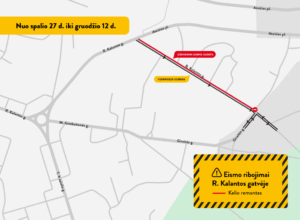The Role of Technology in Streamlining Due Diligence Processes for Healthcare M&A Transactions | Simbo AI
Due diligence in healthcare mergers and acquisitions is the detailed process of investigating a possible deal. It aims to check all important facts about the target company and find any hidden problems. Due diligence looks at different areas:
- Financial: Checking financial statements, cash flows, tax issues, and debts.
- Legal: Reviewing contracts, following rules, intellectual property rights, and ongoing lawsuits.
- Operational: Looking at workflows, IT systems, staff skills, and how facilities are used.
- Cultural: Understanding company values, management styles, and how employees feel.
Hard due diligence focuses on numbers and facts, like financial audits and legal contract checks. Soft due diligence looks at softer issues such as culture and how ready the companies are to combine. This is very important in healthcare because culture differences can affect patient care.
In the United States, healthcare rules are strict and often complex. Therefore, due diligence must be very careful to find all risks before the deal is finished.
Challenges in Traditional Healthcare M&A Due Diligence
Healthcare deals in the U.S. often involve lots of documents. These may include contracts, certificates, financial records, employee agreements, work instructions, and quality reports. Checking all these by hand takes a lot of time and work from lawyers, managers, and financial advisors.
Some big problems with traditional due diligence are:
- Time Limits: Deals have tight schedules, so many documents must be checked fast without making mistakes.
- Complex Rules: Healthcare must follow laws like HIPAA, Stark Law, and Anti-Kickback rules. Missing small details can cause big problems.
- Information Quality: Documents may be mixed up, missing parts, or hard to understand.
- Integration Uncertainties: Checking culture and operations often relies on opinions that are hard to standardize.
- Cost: Due diligence can be expensive, especially if many outside experts are needed.
- Data Security and Privacy: Patient information must be kept safe, limiting what can be shared during due diligence.
For managers and IT staff handling acquisitions, it is important to balance thorough review with speed and data privacy.
How Technology Is Changing Healthcare M&A Due Diligence
Healthcare deal experts in the U.S. have started using technology—especially AI and workflow automation—to reduce manual work, make results more accurate, and speed up deals. A 2023 survey showed most expect AI to cut deal times in half. But people are still careful about using AI because of data safety and ethical concerns.
Technology helps make due diligence easier and faster but needs careful use in healthcare.
AI-Driven Document Analysis and Risk Detection
Artificial intelligence can reduce the time needed to read many M&A documents. AI tools, like Thomson Reuters’ Document Intelligence, use machine learning and natural language processing to sort, pull out, and study document details quickly. This is very helpful for medical practice owners and managers with many contracts and paperwork.
AI software can:
- Look through thousands of documents in minutes, reducing review time by up to 70%.
- Find important contract parts like control-change clauses, indemnity duties, and non-compete rules.
- Spot missing papers or incomplete certificates like tax filings or compliance reports.
- Show inconsistencies and risks that might be missed by humans.
- Automatically sort and index documents in virtual data rooms.
- Flag healthcare-specific issues such as HIPAA gaps or malpractice risks.
One healthcare lawyer said, “Missing one obligation cost us six figures before we used AI.” Another user found a $4 million issue with AI that manual review missed.
By automating document tasks, AI lets legal teams and managers spend time on bigger risk evaluations and planning for combining companies.
Workflow Automation and Process Efficiency
Besides AI for documents, workflow automation helps manage the whole due diligence process. It can schedule who reviews what, track document requests, point out missing data, and handle communication among deal teams. This saves time for healthcare administrators running M&A work.
Customer relationship management tools like 4Degrees offer central deal platforms to map contacts and capture information from emails and meetings. This helps keep track of progress, follow up on questions, and highlight key decision-makers.
Workflow automation benefits include:
- Less manual tracking and paperwork.
- Better teamwork among finance, legal, clinical, and IT groups.
- Quicker replies to information requests.
- Clear audit trails for compliance needs.
- Spotting early integration challenges through communication tracking.
Automating routine tasks and centralizing information help healthcare managers keep deals moving without losing detail or following rules.
AI-Assisted Valuation and Strategic Target Identification
AI in healthcare M&A also helps find and value targets early. Smart analytics look at market trends, transaction info, financial data, and public records like press releases and filings to find companies that fit strategy needs.
This data-driven method helps plan investments by focusing on promising targets and ruling out ones with little growth or high compliance risks. AI can also aid valuation methods like discounted cash flow or peer comparisons, making deal pricing more objective.
Healthcare managers get better early assessments. This saves work on wrong targets and aligns with organizational goals.
Addressing Data Privacy and Security Concerns
Healthcare data is protected by strict laws like HIPAA. Using AI in due diligence raises concerns about data leaks, unauthorized access, and breaking rules. In a 2024 survey, 36% of healthcare deal experts said data privacy and security were top barriers to AI use.
To reduce risks, technology providers must:
- Use strong encryption and secure data storage.
- Avoid including patient-specific data in AI training sets when possible.
- Set access controls and keep audit logs in virtual data rooms.
- Use AI models trained on healthcare compliance materials.
- Keep human supervision to watch for ethical and legal issues.
Balancing advanced technology with strict privacy is key to successful AI use in U.S. healthcare deals.
The Blended Approach: Combining AI and Human Expertise
AI can make due diligence faster, but it can’t replace human judgment, especially in healthcare. Soft due diligence parts like checking culture, management, and clinical quality need human understanding that AI cannot fully grasp yet.
Experts suggest using AI for repetitive, data-heavy tasks while experienced professionals interpret results, add context, and make final calls. This helps:
- Reduce human mistakes during document checks.
- Keep strategic thinking and ethical decisions in risk analysis.
- Use AI speed without losing thoroughness.
- Keep trust with stakeholders and regulators.
Martin Baumgartner from EY Switzerland says that AI needs to work closely with skilled humans for good healthcare M&A due diligence. This mixed method works well for the regulated and complex U.S. healthcare market.
Implications for Medical Practice Administrators, Owners, and IT Managers in the U.S.
Healthcare practice managers and owners usually handle due diligence schedules and compliance, while IT managers support data and cybersecurity. Knowing how technology changes due diligence helps them:
- Improve Efficiency: Automating document review and tasks cuts workload and speeds up deals without losing detail.
- Reduce Risks: AI’s accuracy in finding hidden contract terms and compliance faults avoids costly surprises.
- Ensure Compliance: Secure virtual data rooms with automated protections help follow HIPAA and other laws.
- Better Integrate Acquisitions: Workflow automation shows due diligence progress clearly, helping early integration plans.
- Optimize Human Resources: Legal and clinical staff can focus on strategy rather than clerical work.
- Manage Costs: Faster, accurate due diligence needs fewer outside consultants and avoids deal delays.
When choosing technology, U.S. healthcare groups should check vendor knowledge, security certificates, ease of integration, and ability to handle healthcare documents and rules.
Technology-Driven AI and Workflow Integration in Healthcare M&A Due Diligence
Technology that mixes AI with workflow automation gives benefits for managing healthcare M&A due diligence well. Important features for this field are:
- Advanced Document Intelligence: AI trained with healthcare legal and financial data can accurately scan contracts to find regulatory clauses and compliance gaps important to healthcare.
- Automated Data Extraction: Tools grab key info like licenses, credentials, payer contracts, and malpractice insurance automatically.
- Data Room Management: AI helps sort documents, flag missing items, and suggest redactions to reduce errors.
- Task and Workflow Automation: Assigning review tasks, sending reminders, and tracking deadlines keeps teams organized.
- Relationship Mapping and Analytics: Platforms help understand who influences decisions and how to communicate in complex healthcare deals, aiding dispute resolution.
- Reporting Automation: Generative AI can draft due diligence reports from data quickly but still requires expert checks.
Using these tools, U.S. healthcare M&A teams can manage large and detail-heavy due diligence work better while meeting regulations.
Summary of Benefits and Challenges for U.S. Healthcare M&A Stakeholders
Healthcare deals in the U.S. face special challenges because of rules, data volume, and patient privacy. Using AI and workflow technology in due diligence offers benefits such as:
- Cutting review time by up to 70%, so deals close faster.
- Finding legal, tax, and operational risks more accurately.
- Better control and organization of sensitive documents with AI data rooms.
- Handling growing data amounts and complexity even as deals slow down.
- Starting integration planning earlier in due diligence.
Still, managers and IT must deal with challenges like:
- Data privacy and security concerns limiting AI use.
- Need for skilled people to explain AI results and make legal calls.
- Rules requiring accountability and audit trails for technology used.
- Resistance to new tools and changes in organizations.
- New legal questions about how AI affects disclosure in merger deals.
Even so, evidence suggests mixing AI tools with human skills is the best way to improve healthcare M&A due diligence today.
Technology is changing healthcare M&A due diligence in the U.S. Medical practice managers, owners, and IT staff who learn to use these tools carefully will find better deal speed, fewer risks, and smoother company combinations. This helps their organizations grow more effectively through transactions.
Frequently Asked Questions
What is due diligence in healthcare M&A?
Due diligence is the investigation of a business or person, crucial in mergers and acquisitions (M&A) to gather and evaluate information about the business being acquired, identifying risks that may affect the deal.
What are the types of due diligence?
Due diligence can be categorized into ‘hard’ due diligence, which involves data analysis and financial auditing, and ‘soft’ due diligence, which includes assessing corporate culture and potential integration challenges.
Why is due diligence critical in healthcare M&A?
Due diligence can determine the success of a merger or acquisition by revealing the target’s financial health, compliance with regulations, and compatibility within corporate culture.
What does hard due diligence encompass?
Hard due diligence includes a meticulous review of financial records, legal contracts, regulatory issues, operational data, and tax exposures to assess the acquisition target’s viability.
What is the focus of soft due diligence?
Soft due diligence focuses on understanding the corporate culture, management integrity, and operational dynamics of the target company to predict integration challenges post-acquisition.
What role does technology play in due diligence?
Next-generation solutions like generative AI help automate document identification and clause extraction, improving the speed and accuracy of due diligence analyses.
What does legal due diligence assess?
Legal due diligence examines potential legal issues affecting the target company, including ongoing litigation, regulatory compliance, and the validity of intellectual property rights.
How does financial due diligence work?
Financial due diligence involves analyzing a target’s financial statements to identify risks, including cash flow issues, accounting discrepancies, and potential liabilities.
What is the purpose of operational due diligence?
Operational due diligence evaluates the efficiency and effectiveness of the target company’s operations, identifying any major operational risks that could impact the buyer.
What challenges do teams face during due diligence?
Teams often struggle with time constraints, lack of initial information, and determining the right questions to ask, complicating the due diligence process.


